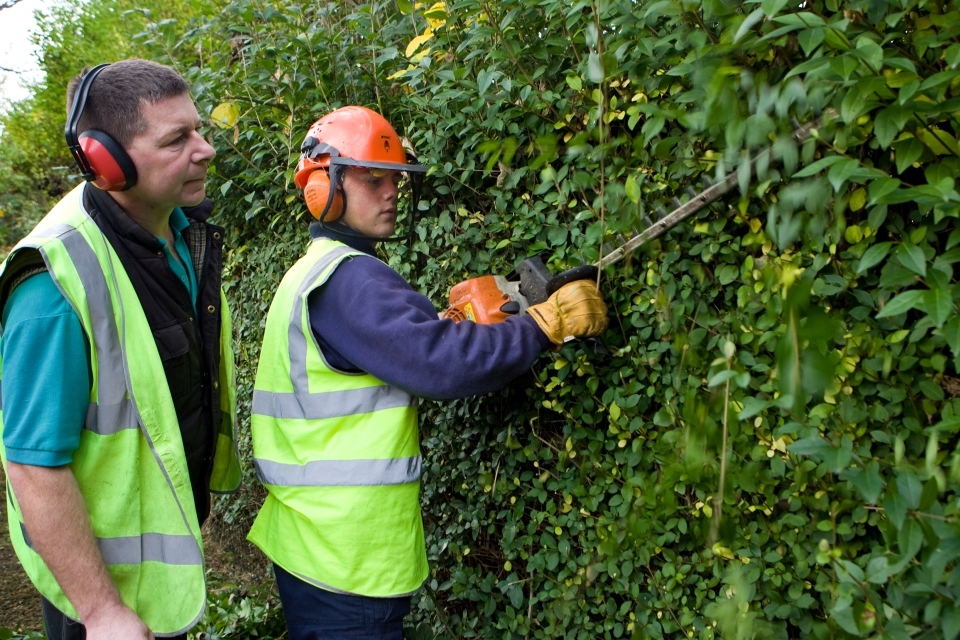
65 per cent of education and training in prisons not good enough
- Select a language for the TTS:
- UK English Female
- UK English Male
- US English Female
- US English Male
- Australian Female
- Australian Male
- Language selected: (auto detect) - EN
Play all audios:
Press release 65 PER CENT OF EDUCATION AND TRAINING IN PRISONS NOT GOOD ENOUGH Today, Ofsted is at Wormwood Scrubs prison for its Further Education and Skills Annual Lecture. In his lecture,
the National Director for Further Education and Skills, Matthew Coffey, is highlighting recent findings that show no prison was rated outstanding for its education and training provision in
the last 4 years. Only 35 per cent were judged to be good. Matthew Coffey, National Director of Further Education and Skills said: > This year’s Annual Lecture aims to focus on how we
can reduce the > stubbornly high reoffending rates that are nearly 50% for adult > prisoners and 72% for juveniles. It is unacceptable that Ofsted > judged only 35% of prisons good
for their education and training > provision. If these figures related to our schools there would be a > national outcry. The aim is to reduce the number of reoffenders by >
focusing on rehabilitation in prisons through better employer > engagement and better teaching and training. > > Far too many prisoners leave prison without employability skills,
> meaning they are less likely to find a job. Research shows that > being in employment is one of the key factors that can reduce the > risk of reoffending by between 30-50%.
However, examples of good > training provision in prisons were all too scarce. In fact, we > haven’t judged a single prison to be outstanding for their > education and training
provision in the last four years. > > Clearly, reducing the number of those reoffending is in everyone’s > interests. Every prisoner costs the taxpayer the same as sending a >
child to Eton, around £34,000 per year. We must now focus on > improvement of prisoners’ vocational and employability skills to > ensure we support them on their journey out of prison
and into > employment to break the cycle of re-offending. The lecture is discussing the fine balance between punishment and the need to focus on rehabilitation to reduce the likelihood of
reoffending. It is exploring solutions to these difficult issues by making recommendations, including the following: * a review of the rules on disclosing a criminal offence after
completion of a sentence * ensuring that prison governors are held accountable for the quality of education and training * for the new resettlement prisons to develop a daily routine that
fits around the working day whilst collaborating with employers to ensure they give training that suits employers’ needs Inspections of education and training in prisons will continue to
focus on the importance of supporting prisoners into sustained employment on release. In a recent small-scale research project , almost 50% of the prisoners sampled had previously been
excluded from school and 63% had been in some form of care as a child. We will continue to ensure our school inspections focus on what school leaders can do to encourage young people to
reach their potential and not drop out of education. NOTES TO EDITORS * You can find the speech in full on the website. * Panel members will include: * Sally Morgan, Chair of Ofsted *
Matthew Coffey HMI, Ofsted National Director of FE and Skills * Nick Hardwick, Her Majesty’s Inspector of Prisons * Phil Taylor, Governor of Wormwood Scrubs * John Hoskison, author of
‘Inside – One Man’s Experience of Prison’ * John Timpson CBE, Chief Executive Officer of Timpson Ltd * Nicola Padfield, Lecturer at the University of Cambridge - Criminal and Penal Justice
Media enquiries Clive House 70 Petty France London SW1H 9EX Email [email protected] Monday to Friday, 8:30am to 6pm 0300 013 0415 Out of hours duty press officer 07919 057 359
SHARE THIS PAGE The following links open in a new tab * Share on Facebook (opens in new tab) * Share on Twitter (opens in new tab) UPDATES TO THIS PAGE Published 10 October 2013